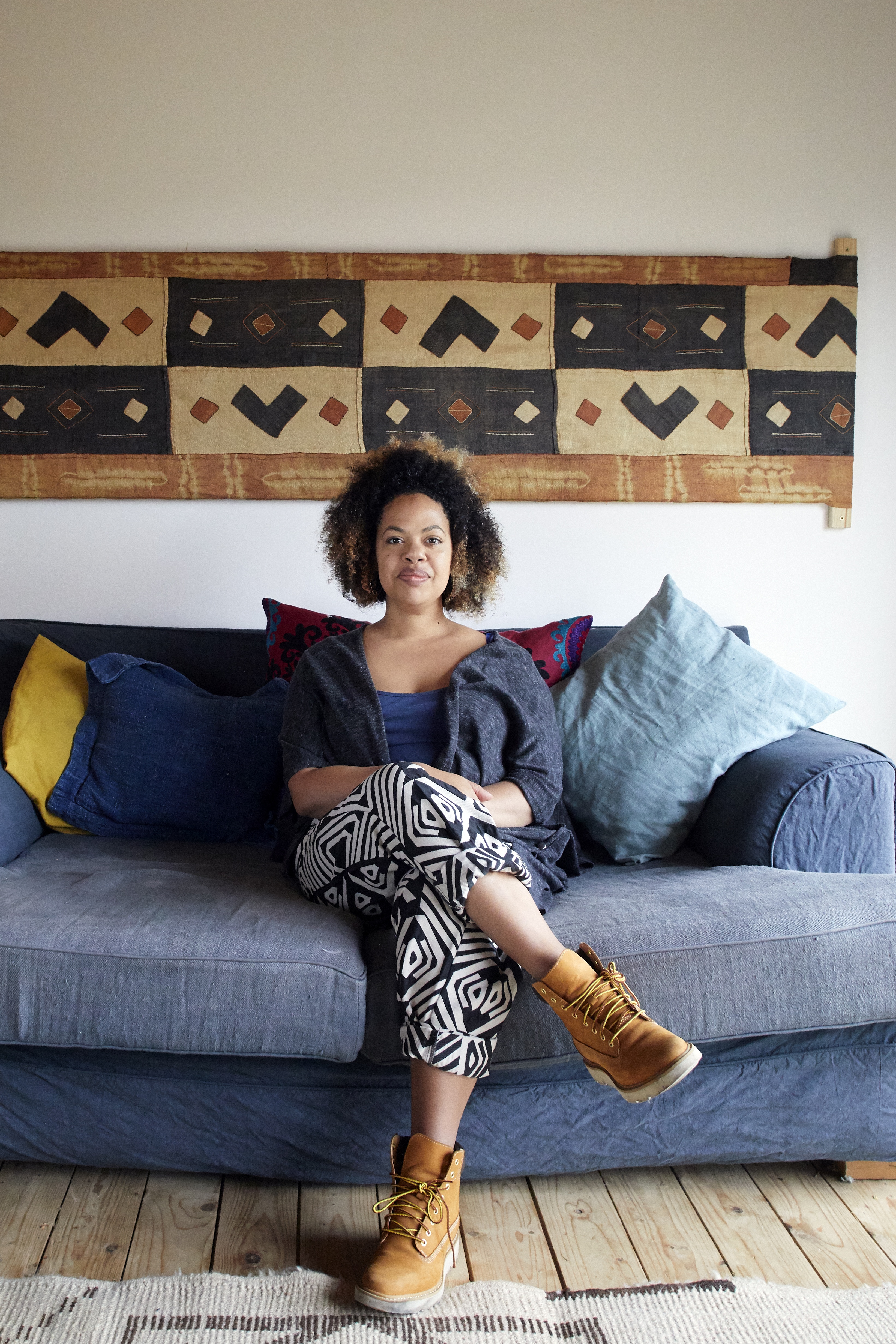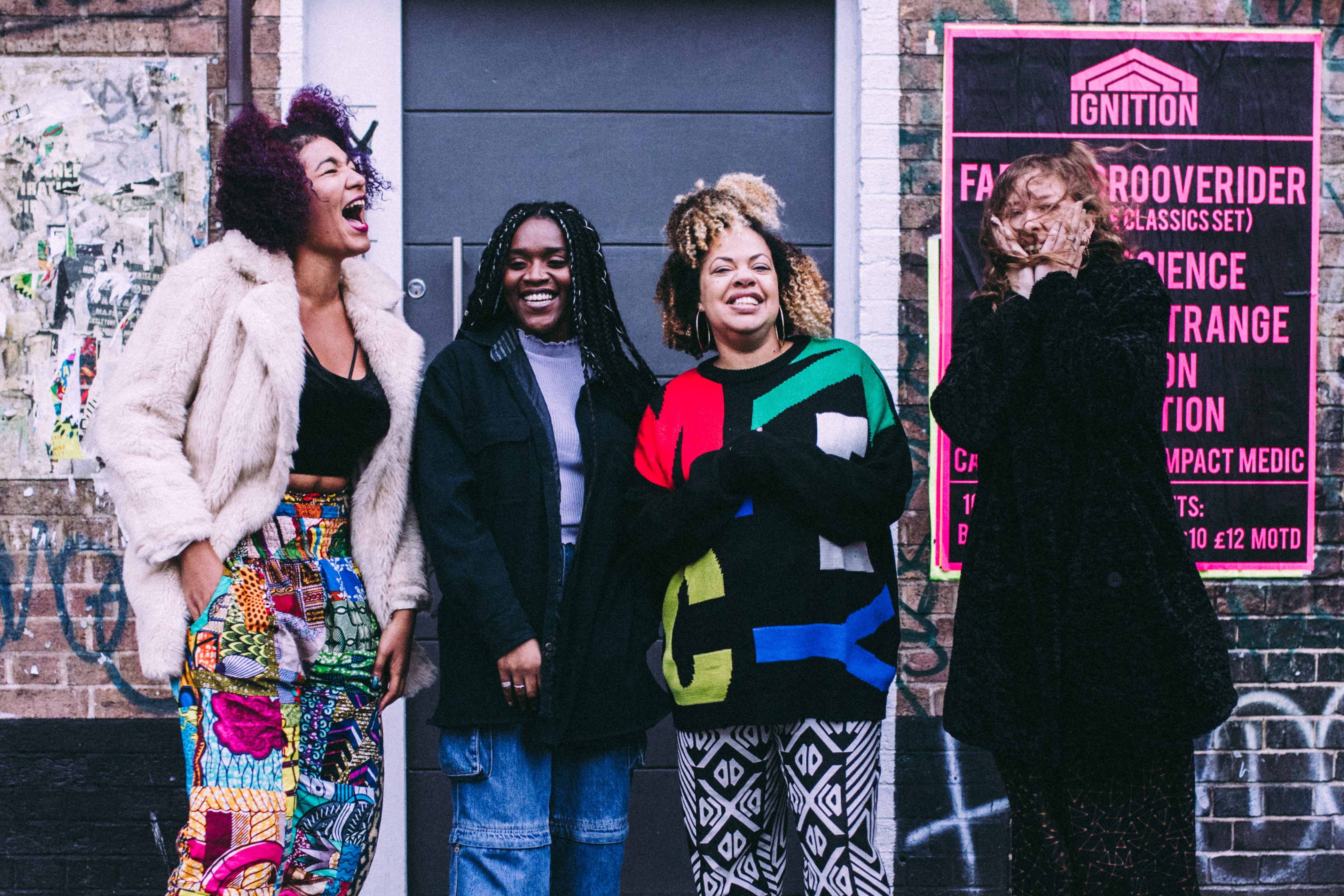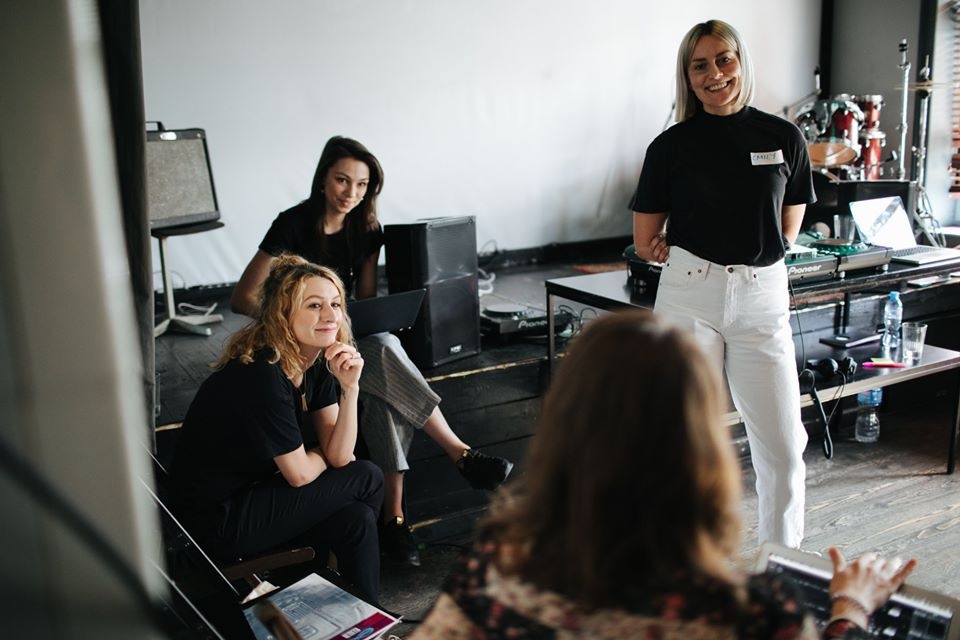SAFFRON: Combatting Gender Imbalance in the Music Industry
A profile on Saffron Music– a UK label working to empower women and minority gender music makers through community-based education and creative support in safe spaces.
Inclusivity and representation work hand in hand. Seeing yourself represented in spaces and careers that inspire you can be the push you need towards starting a career in a field that you’re passionate about or be a disheartening blow when you can’t.
With just 5% of the music tech industry currently composed of women, Saffron want to be a leading example in changing that figure. Saffron Music are providing a platform and a space for new and underrepresented voices in a traditionally male dominated industry. We spoke to Lizzy Ellis, Head of Development and Laura Lewis-Paul, founder and Creative Director at Saffron, to learn more about how the label operates as a social enterprise. We learn about how they advocate for better visibility for women and gender minority artists across the industry, and how they’re re-envisioning the existing industry model and work to create a more inclusive creative space.
Founded in 2015, Saffron Music started as a record label that specifically supported emerging female music creators. Founder Laura Lewis-Paul quickly realised that running an independent label required a lot of start-up investment, which they didn’t have at the time. As a result, Lewis-Paul built a relationship with the PRS Foundation, and Saffron became one of their 32 UK Talent Development Partners. With this newly acquired funding, Saffron were able to start working with three emerging Bristol-based artists each year, assisting them with their creative development and to start releasing music.

In Saffron’s early stages, there was a lot of reflection on the direction the company would take, and conversations surrounding the various disparities pertaining to gender inequalities in the music industry. “The conclusion regularly came back to the fact there was such a small percentage of women in music tech – around 5%, with 2.6% of that being Black women," Lewis-Paul explains.
With Lewis-Paul’s previous career experience working with alternative education programmes, Saffron’s next move was branching out into community-based education and music tech education aimed at women and gender minorities. “This is where ‘Saffron for Sound’ was born,” explains Lewis-Paul. “These are our music tech courses in DJing, Music Production and Engineering. Our passion for accessible education became the driving force of the company which has resulted in us being one of the leading non-profit music tech education providers in the UK.”
Saffron’s mission is to advance gender equality in the music industry by creating a safe space for women and minority genders to learn new skills and build their confidence in them, and they do this in a variety of ways.
“Primarily, this starts with our online and offline short courses and workshops. Building creative and accepting spaces for women and gender minorities to level up their skills, build connections and further their opportunities in music and music tech.”
Working closely with music colleges and universities has allowed Saffron to keep track of the social impact that the company has made. “One of our longest standing education partners is DBS Music. We’ve worked with them since 2016, and each year we measure how many people progress from one of Saffron’s short courses, which we run ‘out of hours’ on their campus, to going into further education with DBS Music.” As a result, each year, Saffron has seen their community grow exponentially. “Our community is able to see more people in these kinds of spaces that look like them, therefore making them feel more of a sense of belonging.”
“We are changing the face of historically male-dominated spaces”, Lewis-Paul continues. “We’re curating festival stages and events programmes which are showcasing and highlighting ‘other’ kinds of producers, engineers and more working in the industry”. As a by-product of Saffron’s efforts, they’re creating role models for their community, and in turn for the wider community at large. “They’re seeing that there are people like them in these roles, and they feel like they belong in this industry too.”

Community is at the heart of Saffron’s ethos and is an integral part of their work– it’s the fuel that keeps the momentum of their work going. “The more our community builds relationships and collaborative opportunities with one another, the more excitement is built around making change.”
The grassroots work of initiatives like Saffron provides a much-needed connection between the marginalised individuals and communities to the wider music industry. Ellis says that there is a responsibility for larger music companies to better help and support women and minority genders, but not in the ways you would think. “There’s often a want to change everything by ourselves,” Lewis-Paul explains “however it’s really important for music companies, especially large ones, to support some of the grassroots organisations, instead of just setting up their own initiatives. Often, this can take away from the hard work taking place on the ground in communities already. It’s much better to look at partnership work and how to work collaboratively and share resources with those who do not have.”
As well as working on initiatives to help communities externally, it’s also very important to look inwardly too and ask ourselves questions about how we are either helping or hindering the progression of equality in the music industry.
“Look at unconscious bias. Look at your own, your colleagues, you as a company. Accept that we all have them but know that we are all open to change them. We can get stuck by wanting to continually be politically correct, and this can be paralysing, so it is important to be open to new ideas, conversations and continually assess how you are impacting the people around you.”
“The social-media society we live in has bred a fear of being called out. Some companies can be too reactive to respond to movements through fear,” Lewis-Paul explains. “This can lead companies to let short-term social media movements lead them, rather than building and implementing longer term strategies to address issues surrounding gender, race, (dis)ability and the general issue of social justice.”

As 2020 has impacted all of us globally, we wonder how Saffron has fared amid the pandemic. Ellis notes that the company has adapted to move their efforts online as creating in-person public events have been drawn to a standstill. This saw the birth of Saffron Members. “This is a digital online club which primarily provides three strands of monthly workshops in music production and creation, DJing and music business and marketing,” Ellis explains. “This has developed nicely over the past eight months and a supportive global community is really growing among our members.”
At the start of 2021, Saffron also ran 7 Days of Sound, a week-long online event of digital workshops where people could develop skills music production, engineering, scoring, DJing, business, wellbeing and more. “January can often be a bleak time of year for people, especially right now with higher unemployment and lack of opportunities in music,” says Ellis, “so we decided to run a flagship event to hopefully give people a positive focus and community to engage with.” The momentum doesn’t seem to be slowing down either, as they have plans to create a music tech consultancy model, too. “We’re starting to support some of our music tech partner organisations by raising awareness of the change needed. We don’t call out– we support and educate others to make change.”
Saffron’s online workshops has allowed them to shine a light on many different inspiring voices in music and music tech, such as Henrietta Smith-Rolla, Suzi Analogue, Anna Meredith and Sherelle. The transition to more digital means of operation as a company has allowed Saffron to connect with a wider global audience. “We’re also able to reach those that may otherwise have difficulties travelling to in-person events, such as single parents, people with access issues, people in rural areas for example. We’ve also been able to work more with artists and inspiring figures in other countries.”
With all their efforts, the excitement surrounding their work is palpable. Their grassroots work has breathed exciting new life into the Bristol music scene in particular. “It’s exciting to see the tangible change we’re able to make and then thinking about this as a scalable model. For example, our Mix Nights DJ program has made such an impact on Bristol’s club scene. There is rarely a line up without one of our DJ graduates on it. Bristol has a very connected, progressive scene, so it’s a really good place to pilot ideas and projects.”
Local community work in Bristol has since turned the city into a beacon of progressive change that reaches far beyond its borders. “We also love seeing how we are impacting people all over the world and giving them a positive experience in something they may have previously had a negative experience with. It feels like we are changing the neurological pathways of an industry, step by step!”
Through Saffron’s various initiatives to advance gender equality in traditionally male-dominated music tech spaces, they have encouraged countless aspiring artists to join their community, in turn becoming visible role models for others. It’s clear to see that the love of community drives Saffron’s efforts and with that community carries them too, a perfect example of just how essential these spaces are in creating substantial and much needed change.
“Our core focus is the fight for social justice, and we still regularly discuss how we can improve as a company” says Ellis. “We’re always learning and growing. The conversation is not ready to be off the agenda, not for any of us, it is only just getting started.”
Learn more about SAFFRON and support them here.
Words: Zainab Hassan
